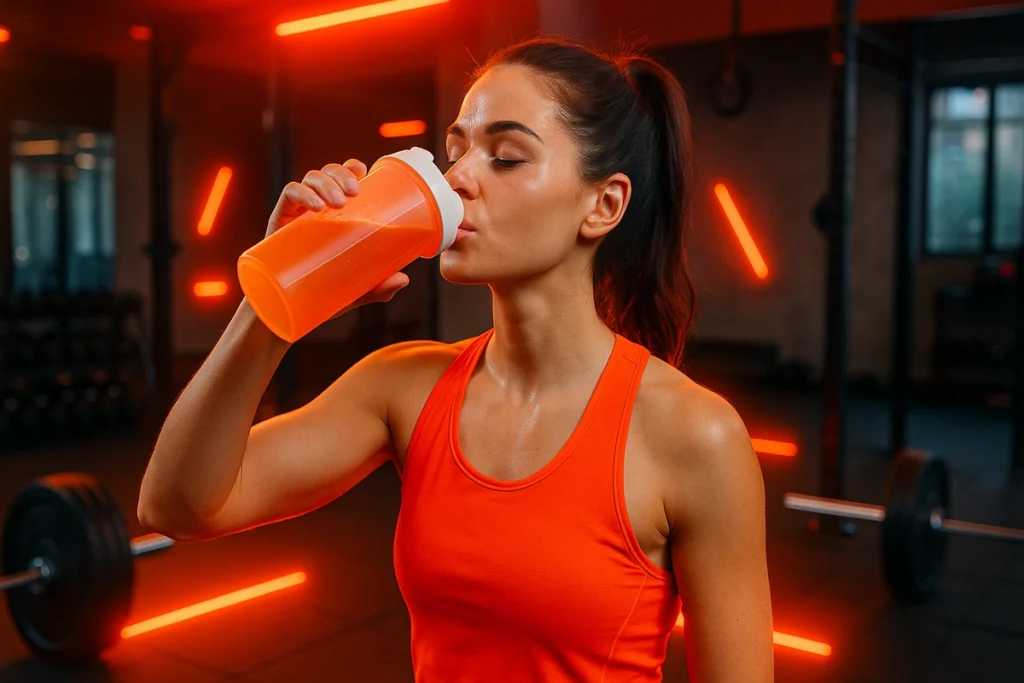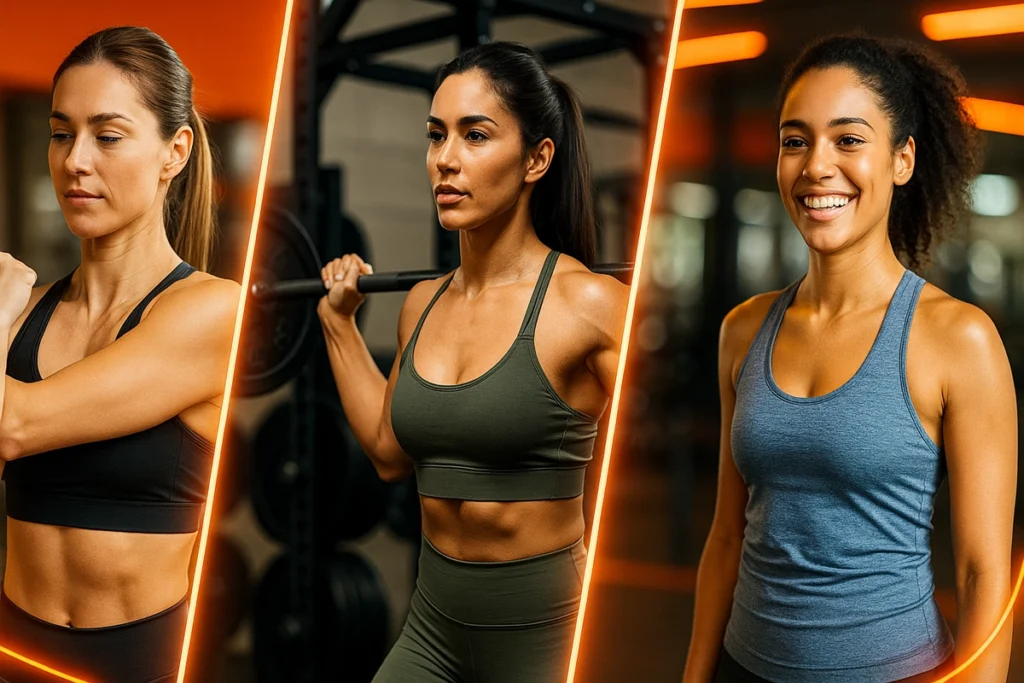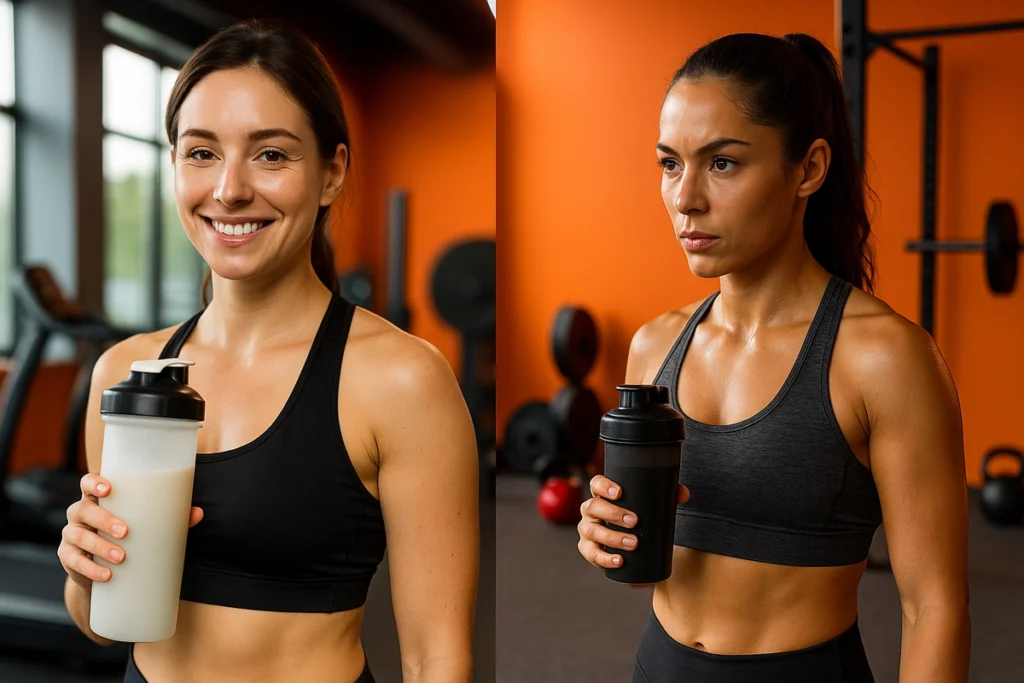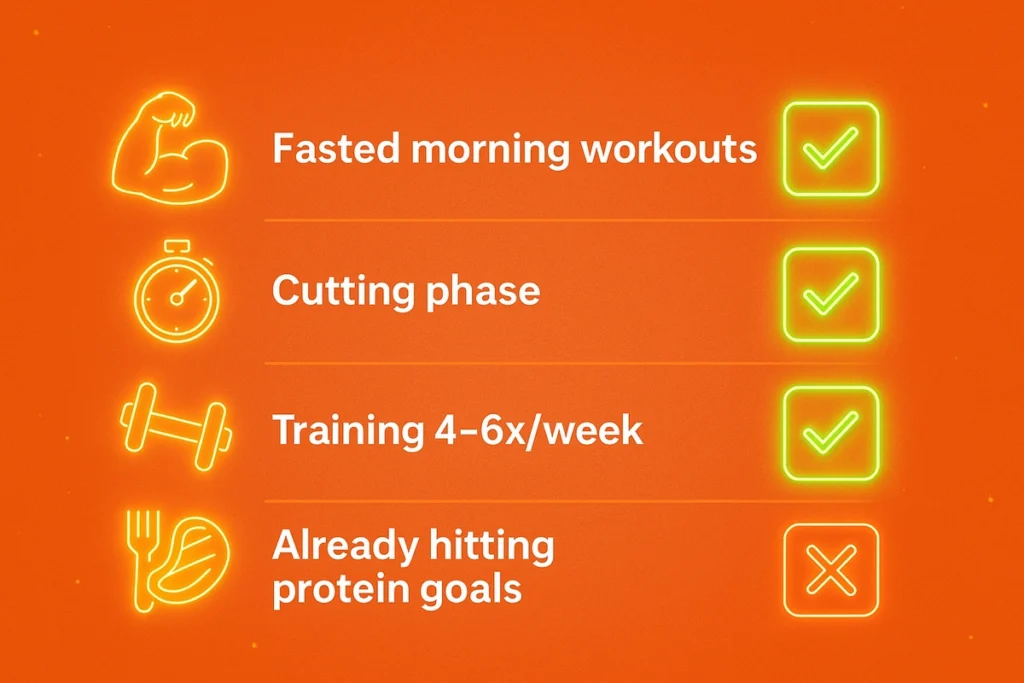Want to train harder, recover faster, and finally see results from your strength workouts?
For women pushing in the gym — or just getting serious about lifting — BCAAs can quietly boost performance, reduce soreness, and protect muscle without complicating your routine.
They’re not just for elite athletes. BCAAs are beginner-friendly, science-backed, and especially useful during fat loss, fasted training, or intense strength phases.
After years of coaching female clients, I’ve seen BCAAs improve recovery, energy, and consistency.
And in this article, I’ll show you how they work, why they help, and how to use them effectively.
Table of contents
- Quick Answer: Do Women Need BCAAs for Strength Training?
- Top 5 Benefits of BCAAs for Women in Strength Training
- When and How to Take BCAAs for Best Results
- BCAAs vs Protein Powders: Which One’s Better?
- Are BCAAs Safe for Women?
- Final Thoughts: Should You Add BCAAs to Your Stack?
- Quick Recap: When BCAAs Make Sense for Women
Quick Answer: Do Women Need BCAAs for Strength Training?

Yes — especially if you’re lifting consistently, training fasted, or trying to lose fat without sacrificing muscle.
BCAAs help you train harder, recover faster, and protect lean muscle. They’re particularly helpful during calorie deficits, high-volume training phases, and morning workouts without food.
I’ve personally seen many of my female clients — like Emily, Anna, and Isabella — thrive once they added BCAAs to their stack.
Top 5 Benefits of BCAAs for Women in Strength Training

1. Faster Recovery and Less Soreness
BCAAs are known to reduce muscle soreness and speed up recovery.
If you’re training multiple times per week, this matters a lot. I’ve had clients who used to be sore for 3 days after leg day — once they introduced BCAAs, they were ready to go again in 24–48 hours.
👉 Learn more here: BCAAs for Muscle Soreness
2. Preserve Lean Muscle While Cutting Fat
Cutting calories often leads to muscle loss — especially for women.
Adding BCAAs can protect muscle tissue during fat loss so you lose fat, not strength. This makes them ideal during cutting phases.
You’ll find more on this topic here:
👉 BCAA vs Glutamine: Cutting Benefits
3. Boost Workout Performance
BCAAs fight mental and physical fatigue during tough workouts.
Especially for fasted training or long circuits, they help you stay strong through your entire session. Several of my clients say they feel “more stable” and “less drained” with intra-workout BCAAs.
Related read: BCAAs During Intermittent Fasting
4. Light on the Stomach, Easy to Use
Many women find whey protein too heavy before workouts.
BCAAs are fast-absorbing, light, and can be sipped with water — no digestion issues, no bloating. Perfect if you train early morning or don’t feel like eating pre-workout.
You can also stack BCAAs with other supplements easily:
👉 Best Time to Take BCAAs and Creatine
5. Hormonal and Mood Support
There’s some evidence that BCAAs help manage cortisol levels and reduce stress-related fatigue.
While not a cure-all, I’ve noticed clients feel better overall — physically and mentally — when they use BCAAs during tough training blocks.
When and How to Take BCAAs for Best Results

I recommend taking 5–8g of BCAAs 10–15 minutes before or during your workout.
Stick with a 2:1:1 ratio of Leucine:Isoleucine:Valine — it’s the most effective and well-researched blend.
This timing supports energy, strength, and recovery. It’s also ideal during fasted training or low-carb diets.
🕒 For more details: Best Time to Take BCAAs
Wondering if BCAAs are useful outside workout days? Read this:
👉 BCAAs on Rest Days Benefits
BCAAs vs Protein Powders: Which One’s Better?

Use protein powders to meet your daily protein needs. Use BCAAs around workouts for faster recovery and muscle protection.
They’re not the same, and they’re not interchangeable.
For example, Nina, one of my clients, had trouble with whey protein in the mornings. But BCAAs worked great for her — no bloating, better energy, and improved strength during early lifts.
💡 Need help deciding between BCAAs, EAAs, and protein?
👉 EAAs vs BCAAs for Workouts
Are BCAAs Safe for Women?

Yes, they are. BCAAs are naturally found in protein-rich foods and are considered safe for regular use.
The only issue I’ve ever seen is clients using low-quality BCAAs or expecting instant results without proper nutrition or training. They’re not magic — but when used right, they work.
Another common myth is that BCAAs make women “bulky.” That’s just not true.
👉 BCAA vs Glutamine for Muscle Recovery
Final Thoughts: Should You Add BCAAs to Your Stack?

If you’re serious about strength training, BCAAs are a solid addition — especially when you’re in a calorie deficit, training fasted, or dealing with soreness.
They help you train harder, recover faster, and preserve lean muscle — without adding calories or causing digestion issues.
As I tell my clients:
“Supplements should support your efforts — not replace hard work. BCAAs are one of the few that actually do their job when used smart.”
Quick Recap: When BCAAs Make Sense for Women

Situation | Should You Use BCAAs? |
|---|---|
Fasted morning workouts | ✅ Absolutely |
Cutting phase | ✅ Yes |
Training 4–6x/week | ✅ Highly recommended |
Already hitting protein goals | 👌 Optional |
No soreness or fatigue | ❌ Not essential |



Leave a Reply